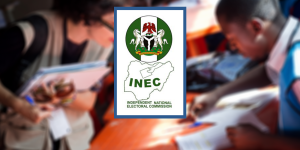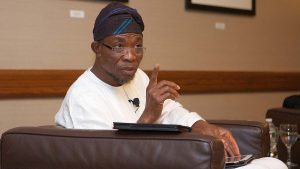Boko Haram as Foreign Terror Organisation: Why Are The 21 American Scholars Silent?
By 2019, Boko Haram designated itself as FOREIGN TERROR ORGANISATION, FTO contrary to 21 American Scholars proposition not to designate Boko Haram as FOREIGN TERROR ORGANISATION. There was a wrong academic proposition on Boko Haram in 2012 by some scholars in the United States of America. Their argument, put forward in strong terms, is that the Jamaatu Ahlil Sunna Lidawati wal Jihad, otherwise known as Boko Haram, should not be slammed with the designation of a FOREIGN TERROR ORGANISATION, FTO. The proposition confused and prevented a global action against Boko Haram in 2012. I want the 21 American Scholars to apologize to Nigeria for the negative proposition.
Why are the 21 American scholars silent on those financing Boko Haram? Why did 21 American scholars write a report and failed to appraise it after seven years? Can the 21 American scholars defend this report in 2019? The scholars deceived the world in 2012 with their report about Boko Haram. How many of these scholars visited Nigeria before they wrote their report?
I want to warn that Nigeria may not survive the current protracted security challenges, most especially coming from the Northeastern and Northwestern parts of the country, if urgent actions are not taken to address the issues. Why are the 21 American scholars silent on Boko Haram and ISIS merger? Why are they silent on bandits in the north?
Why are the 21 American scholars silent when Boko Haram insurgency has displaced nearly 2.4 million people in the Lake Chad Basin? Why are the 21 American scholars silent when civilians in Nigeria, Cameroon, Chad and Niger continue to be affected by grave violations of human rights, widespread sexual and gender-based violence, forced recruitment and suicide bombings?
Why are the 21 American scholars silent when United Nations is strongly condemning all terrorists attacks in West Africa, particularly those carried out by Boko Haram militants in the Lake Chad Basin? The United Nations Security Council has stressed the need to combat terrorism and to address the conditions conducive to its spread. Why are the 21 American scholars silent when the prospects for growth in Islamist activity in the West Africa region — up to and including terrorism — are delicately balanced? Why are the 21 American scholars silent as the onslaught of attacks from an increasingly deadly matrix of Islamist fighters in West Africa?
21 American Scholars in 2012 Wrote a letter to Clinton, to Oppose Terrorist Designation for Boko Haram. The 21 American Scholars ignored 1994,Report by Robert Kaplan when he wrote a controversial Atlantic article, “The Coming Anarchy,” warning of West Africa’s ungoverned spaces, disease-ridden slums, weak borders, and impoverished masses. Kaplan declared: “we ignore this dying region at our own risk.” In 2004, Douglas Farah and Richard Shultz published a Washington Post op-ed that picked up the argument where Kaplan had left off. West Africa had become a terrorist sanctuary. Three years after the 9/11 attacks, the authors proclaimed, “weak and corrupt governments, vast, virtually stateless stretches awash in weapons, and impoverished, largely Muslim populations make the region an ideal sanctuary…The now-identifiable presence of al Qaeda in other countries shows that these once-marginal wars and regions matter. We ignore the warnings at our peril.”
Authors of letter to Clinton * A. Carl LeVan Peter M. Lewis, (American University) Johns Hopkins University * Jean Herskovits Daniel J. Smith – Purchase Brown University * Adrienne LeBas, R. Kiki Edozie (American University) Michigan State University * Brandon Kendhammer Susan Shepler (American University) Ohio University* John Campbell, David Dwyer, Council on Foreign Relations, Michigan State University * Paul Lubeck, Pearl Robinson University of California – Santa Cruz Tufts University * Darren Kew, Clarence Lusane (American University)University of Massachusetts – Boston * Laura Thaut, Nicolas van de Walle, University of Minnesota – Minneapolis Cornell Uni versity * Judith Byfield Susan, M. O’Brien Cornell University, University of Florida * John Paden Deborah, Brautigam George Mason University, Johns Hopkins University *Michael Watts, University of California – Berkeley Additional names added since May 21: *David Laitin, David Wiley Stanford University, Michigan State University *Shobana Shankar, Sandra T. Barnes Georgetown University, University of Pennsylvania
Curiously, the scholars throw in the bait of ‘persuasion’ as opposed to the long-held American position of –non-negotiation’ with terrorists: “Should Boko Haram be designated an FTO through this regime, it would be illegal for non-governmental organizations to interact with members of Boko Haram – even if the purpose of such contact was to persuade them to renounce violence”, the letter said. The letter inter alia: “As scholars with a special interest in Nigeria and broad expertise on African politics, we are writing to urge that you do not designate Boko Haram a Foreign Terrorist Organization (FTO). We are acutely aware of the horrific violence perpetrated by Boko Haram, including attacks on both Muslims and Christians in Nigeria, whether government officials or civilian targets. We share your concerns about the impact of extremist violence on Nigeria’s democratic progress and security in general.
Curiously, the scholars throw in the bait of ‘persuasion’ as opposed to the long-held American position of –non-negotiation’ with terrorists: “Should Boko Haram be designated an FTO through this regime, it would be illegal for non-governmental organizations to interact with members of Boko Haram – even if the purpose of such contact was to persuade them to renounce violence”, the letter said. The letter inter alia: “As scholars with a special interest in Nigeria and broad expertise on African politics, we are writing to urge that you do not designate Boko Haram a Foreign Terrorist Organization (FTO). We are acutely aware of the horrific violence perpetrated by Boko Haram, including attacks on both Muslims and Christians in Nigeria, whether government officials or civilian targets. We share your concerns about the impact of extremist violence on Nigeria’s democratic progress and security in general.
The Islamic State in West Africa Province (ISWAP), a splinter of Boko Haram, is growing in power and influence in north-eastern Nigeria. It has notched military successes and made inroads among Muslim civilians by treating them better than its parent organisation and by filling gaps in governance and service delivery. Why are the 21 American scholars silent?
ISWAP’s deepening roots in the civilian population underscore that the Nigerian government (and, to a lesser extent, those of Cameroon, Chad and Niger) cannot look purely to military means to ensure its enduring defeat. Instead, they should seek to weaken ISWAP’s ties to locals by proving that they can fill service and governance gaps at least in the areas they control, even as they take care to conduct the counter-insurgency as humanely as possible and in a manner that protects civilians.
Twenty-one scholars with expertise on Nigeria sent a letter to fomer Secretary of State Hillary Rodham Clinton in 2012 on Boko Haram. The letter begins by noting the “horrific violence” perpetrated against civilians and government officials, but argues that responding to Boko Haram ultimately requires a “diplomatic, developmental, and demilitarized framework.”
Twenty-one scholars with expertise on Nigeria sent a letter to fomer Secretary of State Hillary Rodham Clinton in 2012 on Boko Haram. The letter begins by noting the “horrific violence” perpetrated against civilians and government officials, but argues that responding to Boko Haram ultimately requires a “diplomatic, developmental, and demilitarized framework.”
The US-based academics, however, argue that formally labeling Boko Haram an FTO would “limit American policy options to those least likely to work.” In particular, it would: (1) Internationalize Boko Haram’s standing and enhance its status among radical organizations elsewhere. A report by Homeland Security Committee in the U.S. House of Representatives in November was entitled, “Boko Haram: Emerging Threat to the US Homeland,” and John Brennan, the Assistant to the President for Homeland Security and Counterterrorism, said in a speech at the Woodrow Wilson Center on April 30 that Boko Haram “appears to be aligning itself with al-Qaida’s and ISISviolent agenda and is increasingly looking to attack Western interests in Nigeria, in addition to Nigerian government targets.” Many scholars however suggest that despite claims by members of the group, and some alleged contact with terrorist organizations outside Nigeria, Boko Haram overwhelmingly remains a domestic problem.
For this reason, the academics in the letter raise the concern that the FTO’s broad legal regime could also impact their ability to conduct independent scholarly inquiry.
An excellent report from the Center for American Progress summarizes the legal consequences of an FTO designation, and points out how numerous terrorist organizations are not designated as such because of the cumbersome problems that it generates for humanitarianism and balanced inter-agency policy making.
Why are the 21 American scholars silent in 2019? As ISIS’ biggest partner in Africa, the alliance is likely to give Boko Haram a new continental influence. It could however, also alienate Boko Haram from its support bases in northern Nigeria and the region. Strategically, the new alliance will secure new funding, arms and foreign fighters from around the world for Boko Haram.
Why are the 21 American scholars silent? As the Islamist sect could get more sophisticated, posing serious operational and tactical challenges to the African Union (AU)-approved multinational joint task force (MNJTF).
Inwalomhe Donald writes from Maiduguri, Borno State, Nigeria inwalomhe.donald@yahoo.com
![]()



